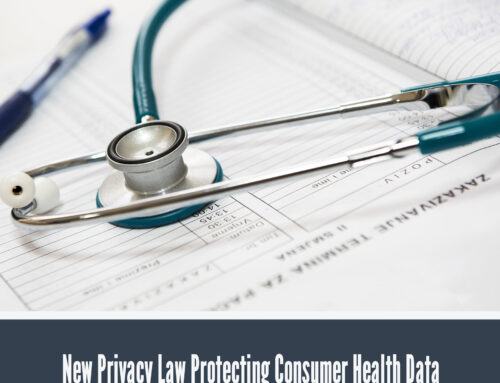By: Jillian C.S. Blanchard
In North Carolina, these essential businesses include construction and critical trades like plumbers, electricians, exterminators, HVAC, painting and cleaning services, to name a few. Due to the nature of these trades, many of these essential business workers will find themselves making home visits to customers. Importantly, many of these customers will also be home when the essential business worker arrives to perform services, due to the Stay-at-Home order. Unfortunately, this brings the potential of customers inadvertently, or worse, knowingly exposing essential business workers to COVID-19. If no symptoms of the virus are evident at that time, this could also lead to your workforce being exposed to the virus.
With all of the news surrounding the importance of social distancing and minimizing contact with others to protect against the spread of COVID-19, it may be hard to believe that a customer would engage essential businesses to perform services on their property knowing that they either have or may have the virus. If not for the protection of others, you would think that the potential of being arrested and charged with a misdemeanor that carries a fine or jail time would deter this sort of activity. Unfortunately, I have already heard of instances where essential business workers arrived at a customer’s property just to be informed by the client, in person, that the customer has been diagnosed with COVID-19. The result—an essential business loses a worker for at least two (2) weeks, or potentially longer if the worker is diagnosed with the virus.
While North Carolina essential businesses are rapidly implementing protocols to protect their in-office workers from potential exposure to COVID-19, business owners may find it more difficult to protect workers performing home services calls for customers the business largely has no control over. So, what protocols can essential business owners put in place to protect workers making service calls?
(1) Determine what home service requests your business will deem essential.
Consider categorizing your services as “essential” or “non-essential.” Some service requests should considered essential, like urgent problems that would leave a customer without necessary services, or problems that could potentially cause a safety hazard, fire hazard, or result in significant damage to the property. However, if delaying a service will not result in extreme detriment or safety concerns for the customer, consider categorizing these service requests as “non-essential.”
(2) Determine what service requests can be performed remotely through virtual services.
Consider whether any service requests can be handled virtually. If a service request requires determining the source of a problem or viewing the property before moving forward, consider holding virtual consultations with customers to view their property or the problems they are experiencing. While this may not be practical in all scenarios, where capable, the use of virtual appointments with customers can be used to minimize unnecessary close interactions with customers.
For those service calls that require the performance of hands-on services on-site, consider the use of virtual services to communicate with customers while on-site. Virtual services can be used to alert a customer that you have arrived on their property, to explain and show a customer what has been determined through evaluation or what has been repaired, and to arrange the exchange of invoices and payments with customers while avoiding in-person contact.
(3) Make sure your workers are implementing protocols to protect themselves while at a customer’s property.
Essential business workers performing services outside of the office should take reasonable precautions to protect themselves from inadvertent or knowing exposure to COVID-19. Some reasonable precautions to take when providing services at a customer’s property include:
- Covering your face with a mask or bandana
- Wearing gloves
- Wiping down surfaces encountered on the property with antibacterial wipes
- Frequently washing your hands and using antibacterial hand sanitizer
- Maintaining adequate social distancing from customers while on the property
- Minimizing in-person contact as much as possible with customers
(4) Use in-office protocols as a way to screen customer service requests for potential risks.
Consider implementing a customer screening protocol for home service requests. A few simple questions could avoid inadvertently exposing an essential business worker to a customer exhibiting symptoms of the virus or diagnosed with COVID-19. It is hard to believe that anyone would knowingly expose workers to the virus, but the unfortunate truth is that it is happening. More importantly, since people have been diagnosed with COVID-19 without ever showing symptoms, the risk of inadvertent exposure is a growing concern.
While inadvertent exposure is hard to manage and can most reasonably be addressed through the other suggestions discussed above, avoiding exposure to customers exhibiting symptoms of the virus or diagnosed with COVID-19 is something your business can address in-office. Consider having a list of basic questions to ask customers before agreeing to schedule a home service call or other work at a customer’s property. Some questions you may consider asking include:
- Is the customer exhibiting symptoms or have they been diagnosed with COVID-19?
- Has anyone living in their home or with whom they have had close contact over the past fourteen (14) days exhibited symptoms or been diagnosed with COVID-19?
- Is the customer or anyone living in their home leaving the home regularly to perform services for the public as an essential business worker or volunteer? If so, consider the potential implications of the work or volunteer services those individuals are providing.
- Has the customer or anyone living in their home traveled recently?
- Where will the requested work be performed—outside or inside the home?
Keep your customers informed of your current business operations and COVID-19 protocols. Consider sending notices to customers to explain the scope of services you intend to offer during this time and how you intend to address customer needs moving forward. When scheduling at home services with a customer, inform them of what to expect when a worker arrives on their property. Explain how on-site communications will be handled, the protocols your business has in place for the safety of both workers and customers, and ensure that they understands that your business takes these protocols seriously and expects compliance. Most importantly, be sure to make your customer aware that your business and the worker that will perform the requested services on their property reserve the right to cancel the scheduled appointment or leave the property at any time they fear there is a potential risk of exposure to the virus.
If you have questions about continuing operations during the Stay-at-Home order, implementing protocols to protect essential business workers, or managing contact with customers, the attorneys at Shipman & Wright are here to assist you and keep your business running smoothly and safely during this unprecedented times.







